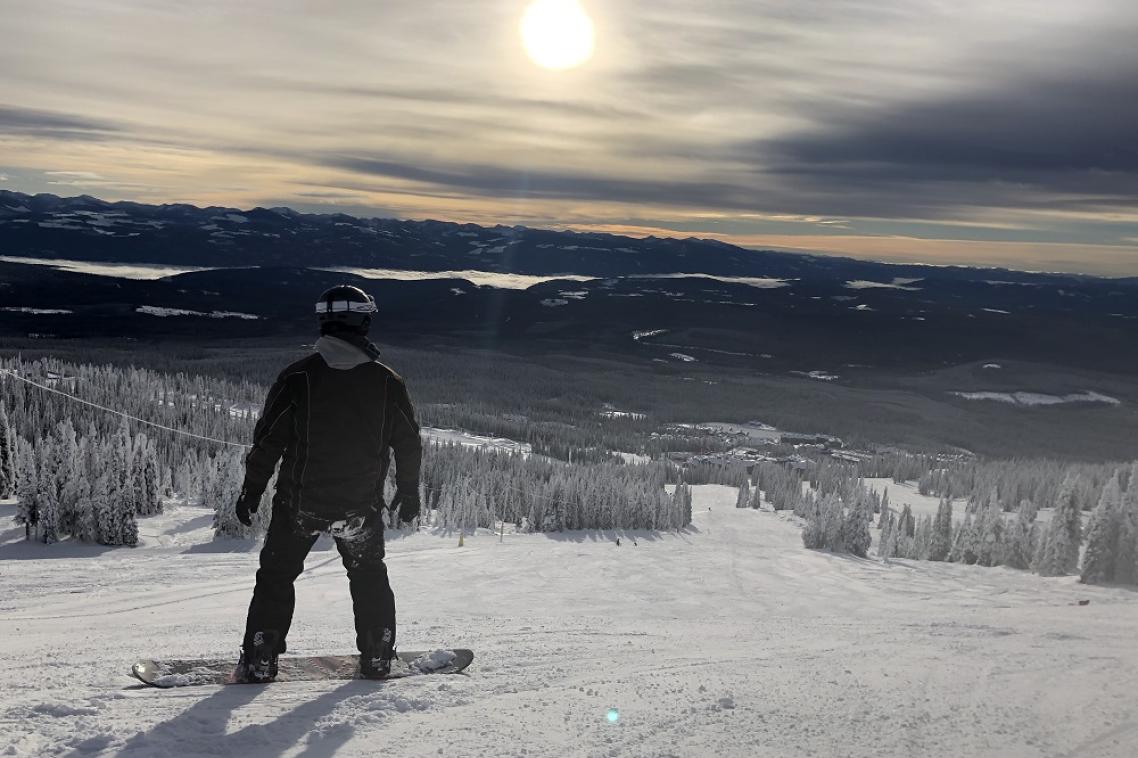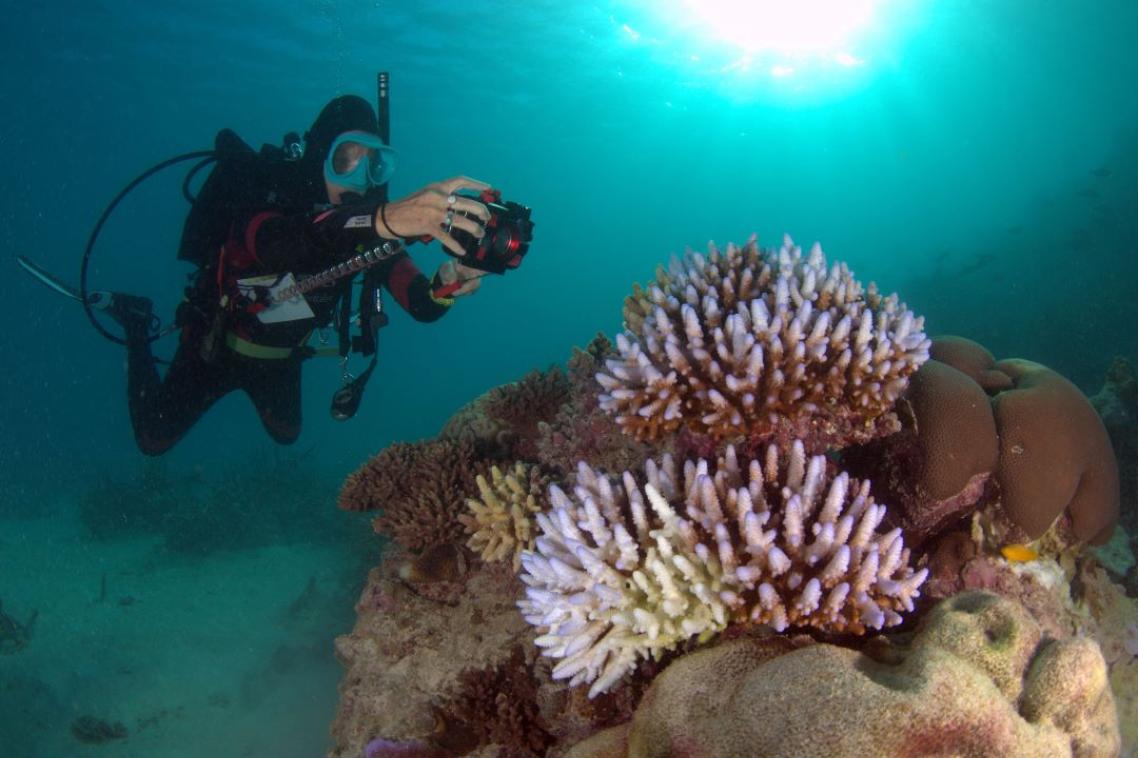UQ researcher carving a new path for skier safety

A spectacular stack on a ski slope in Canada has led to a University of Queensland researcher determining a simple modification that could improve skier safety on the snow.
UQ’s Queensland Brain Institute researcher Dr Will Harrison studied visual perception under different lighting conditions to identify a better method for grooming ski runs.
“Snow at ski resorts is compacted and smoothed in a process called grooming, which has been shown to reduce accidents,” Dr Harrison said.
“Grooming results in a pattern of parallel lines in the snow, and researchers know a lot about how the brain processes these patterns.
“I was interested to test if the particular groom pattern at the ski resort I was skiing at made it more difficult to see the snow.
“After analysing the sensitivity of central vision under different lighting conditions, I found on overcast days the ability to see the standard grooming pattern was severely reduced.
“This is due to the lack of contrast which makes it difficult for the brain to process narrowly-spaced lines.”
Dr Harrison then investigated alternate grooming patterns that could counteract the issue and potentially improve snow sport safety.
By using computer modelling, he was able to predict how well the brain could process groomed snow at the standard viewing distance of 10 metres.
“I determined a combination of differently sized groom patterns would possibly improve visibility, and therefore safety, of groomed snow in cloudy conditions,” he said.
“I’ve shown a minor modification to the grooming pattern could improve safety in theory, now I’m keen to work with engineers to trial it.”
The research was published in i-Perception and supported by a National Health and Medical Research Council of Australia Early Career Fellowship.
Media: Dr Will Harrison, w.harrison@psy.uq.edu.au, +61 (0)480 109 379; QBI Communications, communications@qbi.uq.edu.au, +61 (0)405 661 856.
Related articles

Thousands of Queensland reef photos lead to worldwide change
“Art Museums are the site of public forum.”
Media contact
UQ Communications
communications@uq.edu.au
+61 429 056 139
